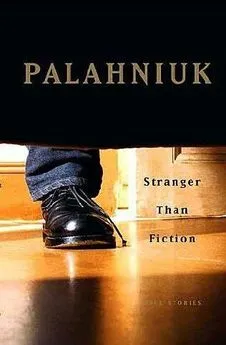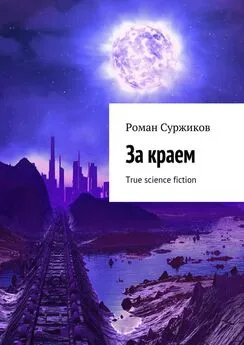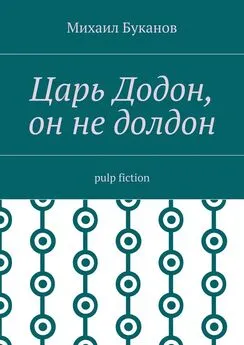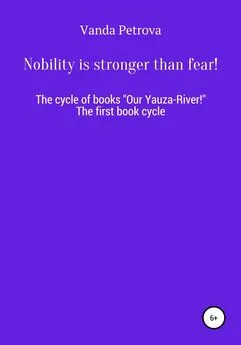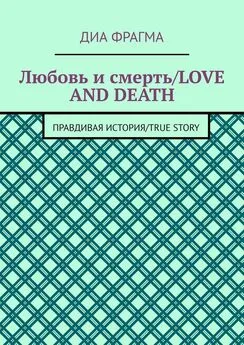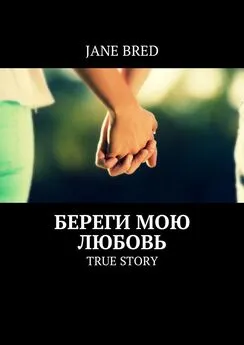Chuck Palahniuk - Stranger Than Fiction (True Stories)
- Название:Stranger Than Fiction (True Stories)
- Автор:
- Жанр:
- Издательство:неизвестно
- Год:неизвестен
- ISBN:нет данных
- Рейтинг:
- Избранное:Добавить в избранное
-
Отзывы:
-
Ваша оценка:
Chuck Palahniuk - Stranger Than Fiction (True Stories) краткое содержание
"Full of wonderful moments…Palahniuk's voice is so distinctive and intimate-he writes as though he is recounting a great story to a close friend." — Los Angeles Times
"Step into Palahniuk's dark worldview and watch for what crawls out. These stories are true to him and no one else." — The Oregonian
“One of the oddest and most oddly compelling collections to come along for some time.” —The Milwaukee Journal Sentinel
“In Chuck Palahniuk’s world, the ride is fast, often disturbing, and there is never any holding back.” —The New Orleans Times-Picayune
“Eccentric, idiosyncratic, and often entertaining.” —The Onion
"Priceless grace notes from an exceptionally droll and sharp-eyed observer." — The New York Times
“Rarely does a collection of essays continually resonate with a main theme and accumulate a weight that would lead you to call it a great book. . This is a pretty great book.” —The Seattle Times
"The book's lurid appeal rests largely on being let in on Palahniuk's secrets, the raw material for much of his fiction. . Acts that give spice to his novels are made more menacing when encountered in the real world." — Black Book
Stranger Than Fiction (True Stories) - читать онлайн бесплатно полную версию (весь текст целиком)
Интервал:
Закладка:
He says, "Strangely, although music is something to listen to, I think music listens back because there's no judgments. A kid can find something he identifies with. Or an adult. Here's a place you can go to where there's no judgments. There's not someone telling you what to believe in."
Manson deals his sixth card: the Star
"This card is the future," he says. "The Star. This means great success."
He says, "For a long time, I never saw myself getting to this point. I never looked beyond this because I thought I was either going to destroy myself or someone was going to kill me in the process. So in some ways I have beaten the dream. And it is scary. It is like starting over, but that's good because that's what I needed. There's been a lot of little rebirths along the way, but now I feel like I've born over into where I started out, but with a different interpretation. I've gone back in time in a way, but now I have more ammunition, more knowledge to face the world."
He says, "The natural thing for me to do is to be involved in movies, but it really has to be on my terms. I think I feel more suited as a director than an actor, although I like to act. I'm talking to Jodorowsky, the guy who did El Topo and The Holy Mountain. He's a Spanish director who worked with Dalí. He wrote a script called Able Cain and it's a fantastic thing. He's had it for about fifteen years, and he hasn't wanted to do it, but he contacted me because I was the only person he wanted to work with. And the character is very different from what people know of me, and that's the only reason I'm interested because most people who approach me, they want me to do different versions of myself. It's not really a challenge of any sort."
In the spring of 2001, Manson plans to publish his first novel, called Holy Wood, a narrative that will cover his first three records. In the attic, he sits on the floor, leaning into the blue light from his laptop and reads the first chapter out loud, a magical, surreal, poetic story, crammed with detail and cut loose from traditional boring fiction. Fascinating, but for now, top secret.
He deals his seventh card: the High Priestess
"This one," he says, "I'm not sure about."
People who come to interview Manson, his publicist asks that they not publish the fact that he stands whenever a woman enters or leaves the room. After his father was disabled with a back injury, Manson bought his parents a home in California and supports them. When checking into hotels, he uses the name "Patrick Bateman," the serial-killing character from Bret Ellis's novel American Psycho.
He deals his eighth card: the World
"The World," he says, "placed appropriately here represents the environmental or outside things that can prevent you."
He says, "I had a great, interesting experience in Dublin. Because it's very Catholic, I did this performance on the European tour. I had this cross made of TVs that burst into flames, and I came out-I basically was just nude except for leather underwear. I'd painted myself all charred. I came onstage, the cross was on fire, and I saw people in the front row turn around and face the other direction. It was unbelievable. It was the greatest compliment in a performance. They were so offended-and it's unbelievable to me that someone could be that offended-that they turned around and looked the other way. Hundreds of people."
Manson deals his ninth card: the Tower
"The Tower is a very bad card," he says. "It means destruction, but in the way that this is read, it comes across like I'm going to have to go against pretty much everyone. In a revolutionary way, and there's going to be some sort of destruction. The fact that the end result is the sun means it probably won't be me. It will probably be the people who try to get in my way."
About his novel, he says, "The whole story if you take it from the beginning is parallel to my own but just told in metaphors and different symbols that I thought other people could draw from. It's about being innocent and naive, much like Adam was in Paradise before the fall from grace. And seeing something like 'Holy Wood, which I used as a metaphor to represent what people think is the perfect world, the ideal that we're all supposed to live up to, the way we're supposed to look and act, and it's about wanting-your whole life-to fit into this world that doesn't think you belong, that doesn't like you, that beats you down every step of the way, fighting and fighting and fighting and finally getting there and realizing that now that you're there, everyone around you are the same people who kept you down in the first place. So you automatically hate everyone around you. You resent them for making you become part of this game you didn't realize you were buying into. You trade one prison cell for another in some ways.
"That becomes the revolution," he says, "to be idealistic enough that you think you can change the world, and what you find is you can't change anything but yourself."
McGowen calls from the airport, and promises to call again when her plane lands. In a week Manson will leave for Japan. In a month, he'll start a world tour in Minneapolis. Next spring his novel will complete the past decade of his life. After that, he'll start again.
"In some ways it feels like-not a burden, but a weight has been lifted by putting to rest a long-term project," he says. "It gives me the freedom to go anywhere. I feel a lot like I did ten years ago when I started the band. I feel that same drive and inspiration, and that same disdain for the world that makes me want to do something that makes people think.
"The only fear I have left is the fear of not being able to create, of not having inspiration," Manson says.
"I may fail, and this may not work but at least I'm choosing to do it. It's not something I'm doing because I'm stuck with it."
Manson deals his tenth card: the Sun
The two Boston terriers are curled up, asleep on a black velvet chair.
He says, "This is the final outcome, the Sun, which represents happiness and accomplishing a great deal."
Bodhisattvas
"We flew down through Miami to Tegucigalpa," Michelle Keating says, "and this was after five days of terror. There's land mines. There's snakes. There's starving people. The mayor of Tegucigalpa was killed the week before in a helicopter accident."
Looking at pictures in a pile of photo albums, Keating says, "This was Hurricane Mitch. I'd never imagined I would go to a disaster like that."
In October 1998, Hurricane Mitch struck the Republic of Honduras with 180 mph winds and days of heavy rain-twenty-five inches in a single day. Mountains collapsed. Rivers flooded. Some 9,071 people died in Central America, 5,657 in Honduras alone, where 8,058 people are still missing. One-point-four million were left homeless, and 70 percent of the country's crops were destroyed.
In the days after the storm, the capital city of Tegucigalpa was an open sewer, buried in mud and bodies. Malaria broke out. So did dengue fever. Rats carried leptospirosis, which causes liver and kidney failure and death. In this mining city, five thousand feet above sea level, one-third of all buildings were destroyed. The city's mayor died while surveying the damage in a helicopter. Looting was widespread.
In this country where 50 percent of the 6.5 million people live below the United Nations poverty level and 30 percent are unemployed, Michelle Keating and her golden retriever, Yogi, came to help find the dead.
She looks at a photo of Yogi sitting in an American Airlines seat, eating an airline meal off the tray in front of him.
Talking about another search-and-rescue volunteer, she says, "Harry said, 'These people are hungry and they might want to eat your dog. And I was driving home from a meeting with him, I was going, 'I don't want to die! — but I knew I wanted to go."
She looks at pictures of the fire station in Honduras where they slept. Rescue dogs from Mexico had already arrived but weren't much help. A dam above the city had collapsed at two in the morning.
"A forty-foot wall of water had gone through and then receded, leaving just this deep, deep mud," Keating says. "Everywhere the water and mud had touched a dead body, there was the smell. That's what was confusing the Mexican dogs. They were hitting everywhere."
Looking at photos of the swollen, muddy Choluteca River, she says, "There was dengue fever. There was the germs. Everywhere you went, you could smell dead bodies there. And Yogi couldn't get away from it, and he wasn't wagging anymore at all. They had a water shortage, but we'd wash everything down as much as we could."
In the pictures, people shovel the mud out of the streets in exchange for government food. The smell of the dead was "pungent," she says. "You could taste it."
She says, "Ten thousand were killed throughout the whole country, and a good percentage of them were right there in Tegucigalpa, because they had the landslides, too. So there were the people drowned by the forty-foot wall of water coming through town. Then the soccer field caved in."
She shows photos of dim rooms, half-filled with dirt and broken furniture. She says, "The first day, we went to a Chinese restaurant where this family had died. The fire department would have to excavate, and what we were able to do is save a lot of time for them, and grief, because we'd pinpoint exactly where. In the Chinese restaurant we put Mentholatum under our noses and wore masks and a helmet with a light because it was dark. All the food, like crab, was spoiling and the sewers had overflowed, and it was knee-deep in mud. And there were all these dirty diapers. So Yogi and I go back into the kitchen, and I thought, 'Oh my gosh, what am I going to find?»
In the photos, she's wearing a miner's hat with a light mounted on front, and a surgical mask of gauze.
"There was all their clothes and personal effects embedded in the mud," she says. "People's entire lives."
They found the dead, crushed and twisted. "It turned out they were under a platform. There was a low platform that tables and chairs were on, and the water had forced them under there."
Michelle's sitting on the sofa in her living room, the photo albums on a table in front of her. Yogi sits on the floor at her side. Another golden retriever, Maggie, sits in a club chair across the room. Both dogs are five and a half years old. Maggie came from an animal shelter after they found her, sick and starving, apparently abandoned by a breeder after she'd produced so many litters she couldn't have more.
Yogi she bought from a breeder when he was six months old and couldn't walk.
"It turned out that he has elbow dysplasia," she says, "and a couple years ago I took him to a vet in Eugene who did surgery to allow him to walk. It reseated the joint. What had been happening was, this small joint-it was supposed to be a strut, but it was taking the weight, so it was fragmenting, and it was very painful for him."
Looking at the dog in the club chair, she says, "Maggie's more the red, smaller kind. She's probably about seventy-five pounds. Yogi's the larger, blond, long-haired fellow. In the winter he's over ninety pounds. He's got the typical golden big butt."
Looking at older pictures, she says, "About eight years ago I had a dog named Murphy. He was border collie/Australian shepherd mix, an incredible dog, and I thought, 'Here's a good way to work obedience with him and maybe meet some people. I was working at Hewlett-Packard, in an office situation, so I needed a balance."
She says, "The more I did it, the more intrigued I was by the cases. It started out as this dog-focused obedience thing and evolved into something that I really had more of a passion for."
Читать дальшеИнтервал:
Закладка:
